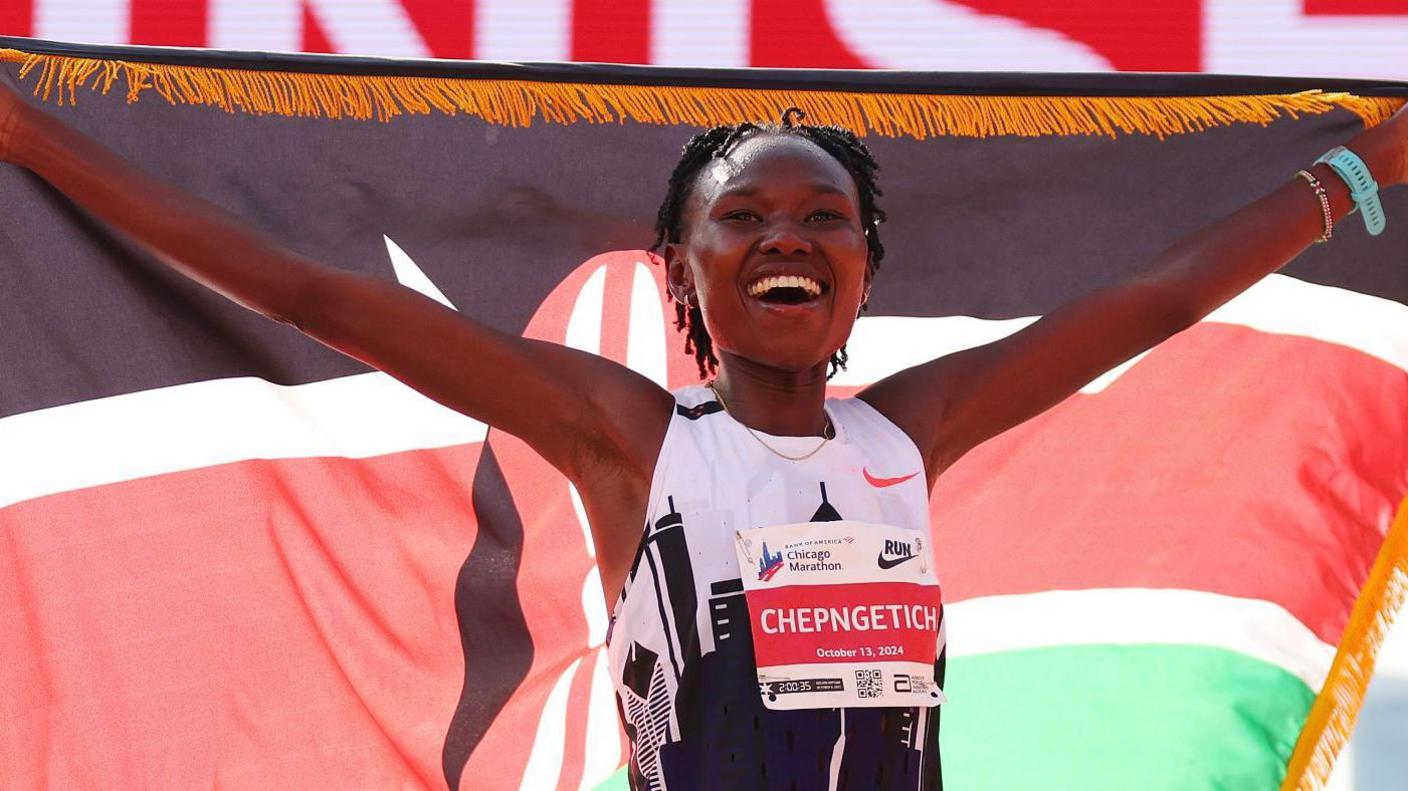Kenyan marathon star Ruth Chepngetich, the women’s marathon world record-holder, has been banned for three years after admitting to anti-doping rule violations. The Athletics Integrity Unit (AIU) confirmed the sanction following Chepngetich’s positive test for Hydrochlorothiazide (HCTZ), a prohibited diuretic often used to mask the presence of performance-enhancing drugs.
The 31-year-old long-distance runner, who made history at the Chicago Marathon in October 2024 by setting a world record time of 2 hours, 9 minutes, and 56 seconds, was provisionally suspended in July 2025. The positive sample was collected on 14 March 2025, showing an estimated concentration of 3,800 nanograms per millilitre (ng/mL) of HCTZ — far exceeding the minimum reporting level of 20 ng/mL allowed under anti-doping regulations.
The AIU initially pushed for a four-year ban, citing serious concerns about the credibility of Chepngetich’s explanations and possible evidence of intentional use. However, the ban was reduced to three years after the athlete admitted to the violations within the required 20-day window, in line with the organization’s disciplinary code.
While her suspension takes effect from 19 April 2025, when she accepted a voluntary provisional ban, Chepngetich will forfeit all results, titles, and prize money earned after 14 March 2025. Her achievements before that date, including her historic world record, will remain recognized.
AIU Continues Investigation Over “Suspicious Evidence”
The AIU revealed that evidence obtained from Chepngetich’s mobile phone suggested “a reasonable suspicion that her positive test may have been intentional.” Investigators reportedly discovered messages dating back to 2022 that raised questions about potential deliberate doping practices. AIU head Brett Clothier stated that although the specific case regarding HCTZ has been resolved, further inquiries are ongoing to determine if additional violations occurred.
When first interviewed by the AIU in April, Chepngetich was unable to explain how the banned substance entered her system. Later, in July, she claimed she had unknowingly taken her housemaid’s medication marked as HCTZ after feeling ill two days before the positive test. The AIU, however, dismissed this claim, stating that such conduct demonstrated “recklessness,” which in doping terms is considered indirect intent—usually subject to a four-year sanction.
Integrity and Accountability in Athletics
AIU chair David Howman praised the sport’s zero-tolerance approach, stating that this case underscores the effectiveness of global anti-doping systems in maintaining fairness. “While disappointing for those who put their trust in this athlete, this is how the system is supposed to work,” he said. “Nobody is above the rules. The road-running industry deserves credit for funding strong anti-doping efforts capable of uncovering violations among elite athletes.”
Chepngetich’s case adds to a growing list of high-profile Kenyan athletes facing doping sanctions in recent years, a trend that has cast a shadow over the country’s dominance in long-distance running. Kenyan authorities, in collaboration with the AIU and World Athletics, have intensified their efforts to combat doping through education, increased testing, and stricter penalties.
Legacy Under Scrutiny
Ruth Chepngetich’s rise to global fame was marked by impressive performances, including winning the 2019 World Athletics Championships marathon and multiple victories in major international races. Her 2024 world record in Chicago made her the first woman in history to run a marathon under two hours and ten minutes, cementing her place among the sport’s all-time greats.
Now, with a doping ban overshadowing her achievements, Chepngetich faces a long road to redemption. Although her earlier titles will remain on record, the controversy threatens to tarnish her legacy and serves as a stark reminder of the importance of integrity in sport.
The ban will keep Chepngetich out of competition until April 2028, effectively sidelining her from the upcoming World Championships and the 2028 Olympic Games in Los Angeles.
As the investigation continues, the athletics world watches closely to see whether further evidence will emerge and what lessons will be learned from yet another high-profile doping scandal in Kenyan athletics.














Leave a comment